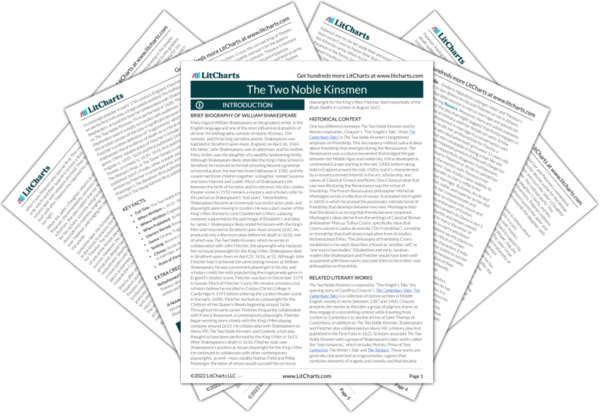Hippolyta believes that Emilia's "persuasion" toward female-female love is a phase she will grow out of, but Emilia remains certain she will never want to marry. Hippolyta seems to have adopted a practical stance toward what is expected of her in society. In mythology, Hippolyta was an Amazon (mythic female warrior), so there’s a symbolic hint that she seems to have compromised a lot to marry Theseus. On the other hand, her sister Emilia remains resistant to these expectations. Whether this is a testament to Emilia's innocence or a veiled hint at her homosexuality is subject to debate.
